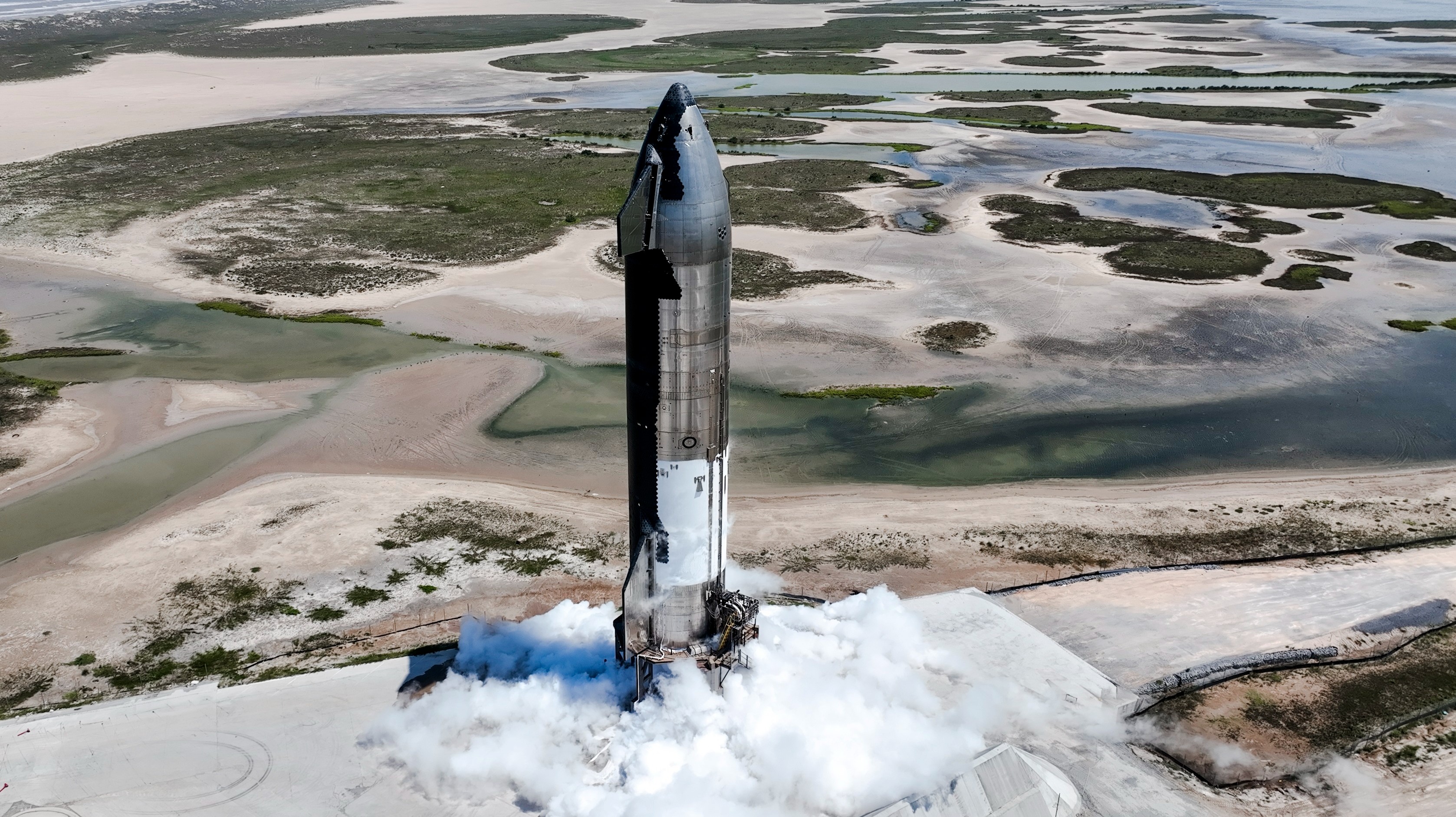
SpaceX is grooming its next Starship vehicle for flight.
The company recently conducted an engine test at its Starbase site in South Texas with Ship 25, the upper-stage prototype that will fly the next Starship test mission.
"Ship 25 completed a flight-like chill and spin of the Raptor engine pumps, stopping just before engine ignition. As a result of the test, cryogenic liquid oxygen formed a visible cloud beneath the ship. This checked out vital systems in advance of the upcoming static fire," SpaceX wrote in a Twitter post Thursday (June 22) that included a photo of the test.
Static fires are common prelaunch tests, in which engines are briefly lit while a vehicle remains anchored to the ground.
Related: Relive SpaceX's explosive 1st Starship test flight in these incredible launch photos
Ship 25 completed a flight-like chill and spin of the Raptor engine pumps, stopping just before engine ignition. As a result of the test, cryogenic liquid oxygen formed a visible cloud beneath the ship. This checked out vital systems in advance of the upcoming static fire. pic.twitter.com/1rMOqlf5qMJune 22, 2023
Starship, the biggest and most powerful rocket ever built, consists of two elements: A huge first-stage booster called Super Heavy and a 165-foot-tall (50 meters) upper-stage spacecraft known as Starship.
Both vehicles are designed to be fully and rapidly reusable, and both are powered by SpaceX's next-generation Raptor engine — six for Starship and 33 for Super Heavy.
A fully stacked Starship has flown just once, on an April 20 test flight from Starbase that aimed to send the Ship 24 prototype most of the way around Earth, with a targeted splashdown near Hawaii.
That didn't happen, however. Starship notched a number of milestones that day, but its two stages failed to separate as planned, and SpaceX ordered a self-destruct high above the Gulf of Mexico a few minutes after liftoff.
The upcoming second test flight, which will feature Ship 25 and a Super Heavy prototype called Booster 9, will have similar goals as the first one, SpaceX founder and CEO Elon Musk has said.
And SpaceX plans to launch that next mission soon — perhaps just six to eight weeks from now, provided Ship 25 and Booster 9 tick all their testing boxes and regulatory hurdles don't stand in the way.







